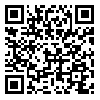
Scientific-Research Quarterly Journal of
Law Knowledge

Volume 3, Issue 8 (9-2025)
SRQJL 2025, 3(8): 38-62 |
Back to browse issues page
Download citation:
BibTeX | RIS | EndNote | Medlars | ProCite | Reference Manager | RefWorks
Send citation to:



BibTeX | RIS | EndNote | Medlars | ProCite | Reference Manager | RefWorks
Send citation to:
Haidari M A. The Relationship Between Rational Independents and Natural Law in the Views of Contemporary Legal Thinkers. SRQJL 2025; 3 (8) :38-62
URL: http://srqjl.knu.edu.af/article-1-90-en.html
URL: http://srqjl.knu.edu.af/article-1-90-en.html
Academic Staff of the Faculty of Law, Faculty of Law and Political Science, Khatam al-Nabieen University (PBUH), Ghazni Branch
Abstract: (222 Views)
Despite epistemological transformations and philosophical shifts in Western civilization, the doctrine of "natural law" remains one of the influential theoretical foundations in ethics, law, and political thought, and continues to play a role in the interpretation of human and civil rights today. This article aims to explore the possibility of conceptual equivalence between "natural law" in the Western tradition and "rational independents" (al-mustaqillāt al-ʿaqliyya) in Islamic thought. The necessity of this investigation arises from the fact that some Islamic thinkers consider rational independents as referring to intrinsic good and evil, and regard them as possessing capacities similar to those of natural rights.
The research method employed in this study is analytical-comparative, focusing on Islamic philosophical and jurisprudential sources to examine and comparatively evaluate the concepts. The findings indicate that although there are similarities in rational foundations and teleology between the two doctrines, fundamental differences in their modes of explanation, epistemological status, and the role of reason in each tradition prevent complete alignment.
The research method employed in this study is analytical-comparative, focusing on Islamic philosophical and jurisprudential sources to examine and comparatively evaluate the concepts. The findings indicate that although there are similarities in rational foundations and teleology between the two doctrines, fundamental differences in their modes of explanation, epistemological status, and the role of reason in each tradition prevent complete alignment.
Keywords: Natural law, natural rights, rational independents, entailment, contemporary legal thought
Send email to the article author
| Rights and permissions | |
 |
This work is licensed under a Creative Commons Attribution-NonCommercial 4.0 International License. |

